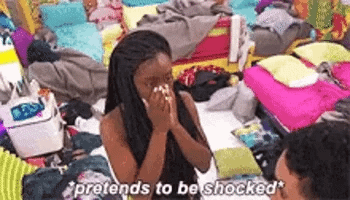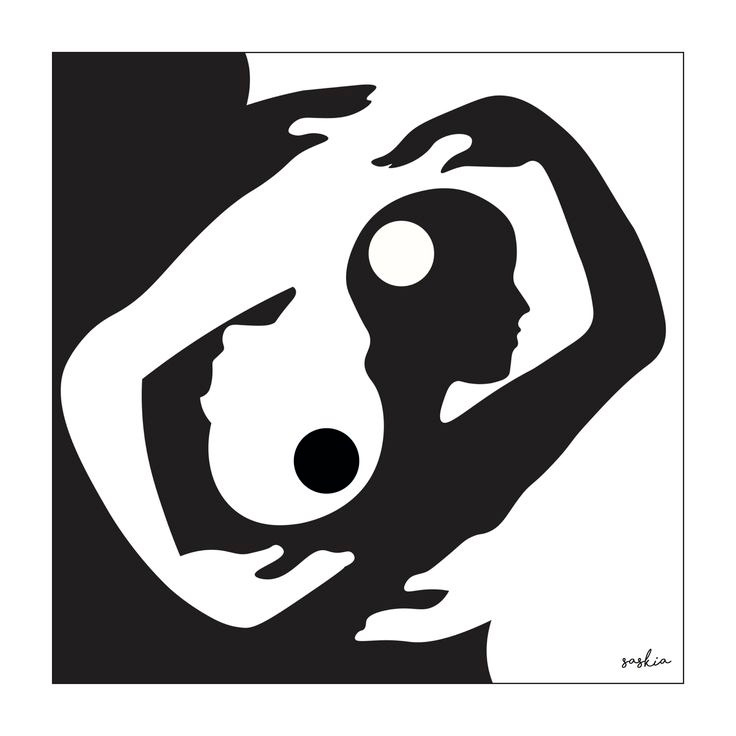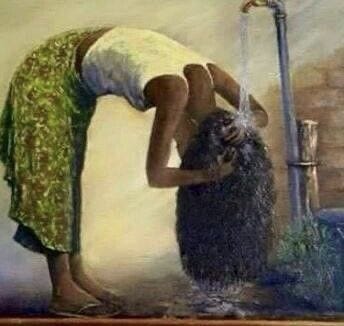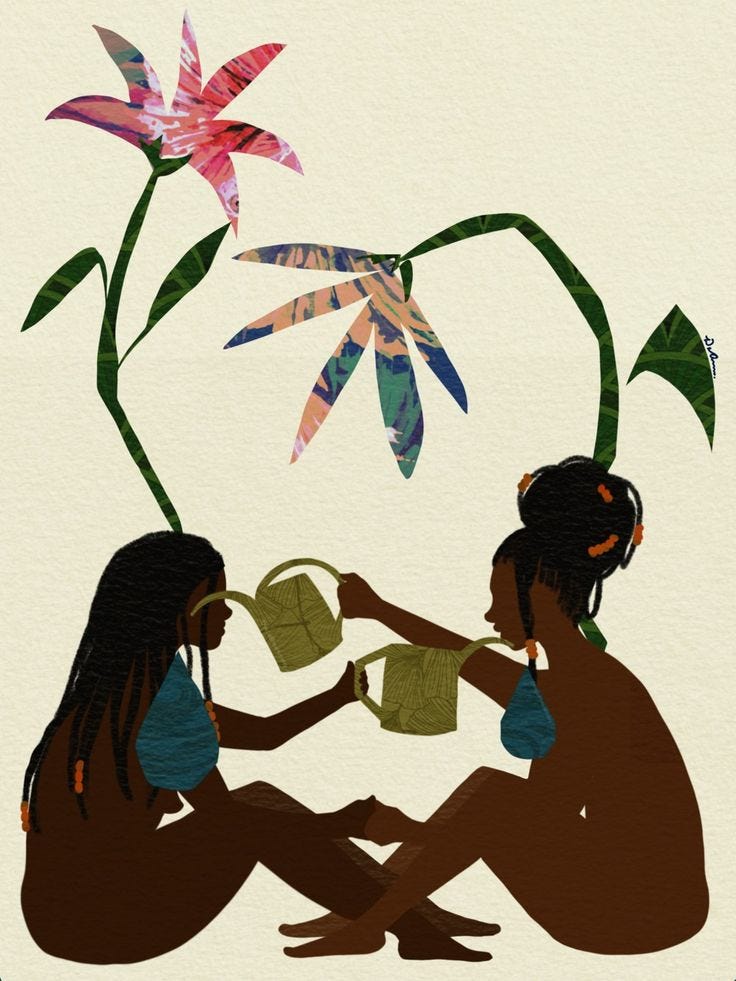why do I like you again?
As people remark on how mean they'll be this year ie. what boundaries they'll be upholding, I explore how relationships reach their breaking point.
Intro
Nobody grew more than me last year. As a student of all things esoteric, I can tell you with confidence that 2024 was a year of deep transformation. I went from passionately anticipating a promotion in my product design 9 to 5, to not opening the Figma app in months to now building a startup through an accelerator programme full-time. Start of 2024, I was a shell of myself and was largely unfocused; start of 2025, things have never been more clear and I have unbridled confidence in myself. And with such massive change, as is to be expected, some bonds have been broken.
One of the things last year taught me is to not despise any version of myself no matter the decisions they made and the behaviour they allowed. They did their best with the information they had and it has all lead to being to me being the person I am right now (who I love very much).
Living life with regrets is a waste of energy. Reflection on the other hand, in just the right amounts when appropriate to do so, will always be my bag.
Here are a few things I learned about how relationships —familial, platonic and romantic, break.
Water seeks its level
Any relationship with an inequitable dynamic is destined to fail. Humans are healthiest when maintaining equilibrium. Enough work, enough play. Enough exercise, enough rest. Enough faith, enough evidence. Enough style, enough substance. Balance.
Whether the two people in an inequitable dynamic choose to acknowledge it or not, the relationship will become a problem. One person cannot always be giving while the other receives. One person cannot keep growing while the other remains stagnant. One person cannot be the one to always listen while the other speaks. And it’s usually a combination of multiple things that creates distance. In this space, resentment grows, usually by both parties.
Human beings are prone to finding familiar dynamics. We feel safe and it works until we are no longer growing at the same rate or in the same areas. The tether is due to disconnect sooner or later no matter how tightly you hold on. I recommend letting go as soon as you recognise the discomfort (you know what that feels like, c’mon) or until you find yourself on ChatGPT seeking permission to cut them off (🫣).
Healthy relationships are not built on foundations of trauma
Whether it’s trauma bonding in a romantic relationship or building a friendship based on similar experiences you relate with, the relationship cannot be healthy. Trauma recurs when it is not processed by the body. This is most common when a child who doesn’t have the ability to understand adult concepts is not helped with processing and regulating. A parent who shouts at a child but doesn’t come back to apologise and affirm that wasn’t about you and you didn’t deserve it. Seeking safety, the mind and body makes the wrong connections, usually internalising it.
I used to belong to the group of people who would actively analyse and pick apart this unprocessed trauma in an attempt to understand it; ruminating on it, reliving it, constantly seeking answers to questions like “why did that happen to me?”. I’d find other people like this and our conversations would be spent reopening old wounds. Forming complicated attachments to something that should be moved through and moved on from. Perpetuating suffering.
I initiated my year of therapy because I wanted to enjoy my life. After literally googling “how to be happy” and coming across Mo Gawdats Solve for Happy series on YouTube, I knew it was possible to have positive feelings about work, fun-filled friendships that aren’t so heavy all the time, romantic relationships that felt safe, and an inner world that was peaceful and I wanted that for myself. After doing this hard, expensive work with a professional, why would I want to go back there? When trauma is no longer on the table as a topic of conversation, is there still commonality?
Death to authenticity by tiny cuts of self-betrayal
A massive betrayal by another person often follows many instances of self-betrayal in an effort to maintain the relationship. You didn’t really like how they spoke about their other friend to you but you let it run because they were emotional and you never addressed it because the moment passed. Their reaction in a situation they recounted reeked of avoidance and manipulation and is dead wrong but it’s their life, what’s your own.
I’ve always found my judgement muscle a difficult one to flex. Who likes feeling judged, and why should I be judging my friends of all people? If I cut off everyone for every little thing I didn’t agree with, would I even have any friends? Who am I to judge when I’m not perfect?
What it comes down to is what it always comes down to — strict boundaries.
We teach people how they can behave around us and what we will allow from them. This doesn’t mean we have to play their therapist. We don’t have to become life coaches. We don’t need to make them feel bad. We don’t even need to cut them off completely. We just need to make our standards abundantly clear. You know when your mum doesn’t even need to say anything, she just gives you a side-eye.

Relationships cannot be safe-havens for nonsense. You have to rate the people you love. Even when they make mistakes, the way that they go about rectifying it has to align with your values. We owe no one but ourselves blind loyalty and even then, loyalty also looks like holding ourselves accountable when we need to. How else will we grow?
To conclude
There’s no way to predict bad behaviour from the people we choose to love. We cannot prevent pain nor disappointment. We’re constantly just gathering information about each other; seeing what we like and what we don’t like. Seeing what works and what doesn’t.
When it works, be present with it —enjoy it.
When it doesn’t, open your eyes or they will be opened for you.
Happy New Year to all my readers! I have a great feeling about this one.
-Valerie





